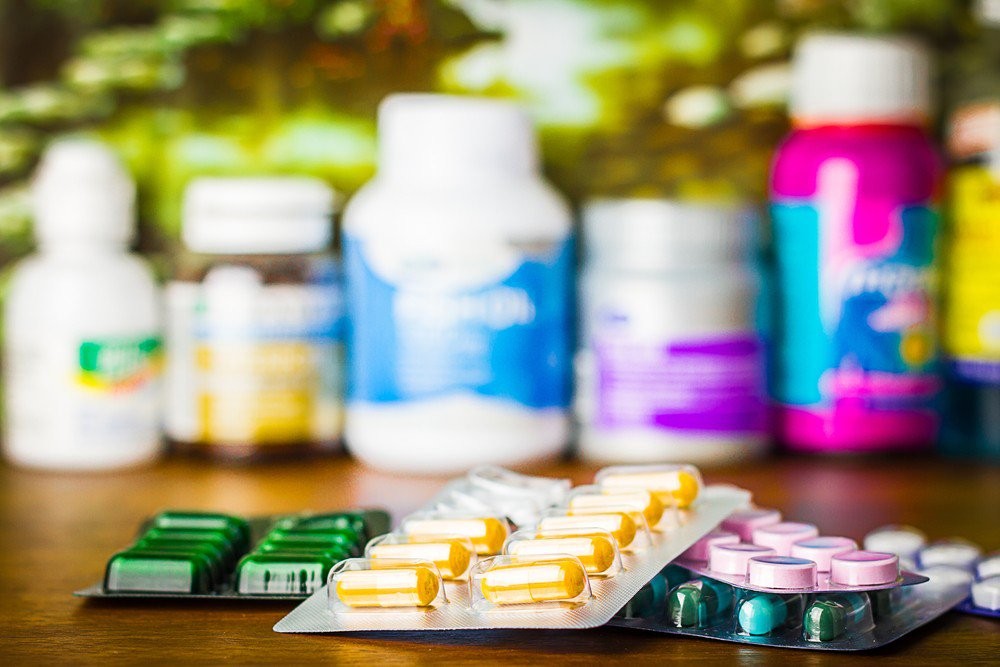Popular Reads
Top Results
Can't find what you're looking for?
View all search resultsPopular Reads
Top Results
Can't find what you're looking for?
View all search resultsPharma firms see drop in demand as people avoid visiting healthcare facilities
The Indonesian Pharmaceutical Companies Association (GP Farmasi) reported Wednesday the drop in demand had forced companies to lower their production capacity to less than 50 percent for the past three months.
Change text size
Gift Premium Articles
to Anyone
P
harmaceutical companies have seen declines of between 50 to 60 percent in demand for drugs during the COVID-19 pandemic as people avoid visiting medical facilities, according to an industry group.
The Indonesian Pharmaceutical Companies Association (GP Farmasi) reported Wednesday the drop in demand had forced companies to lower their production capacity to less than 50 percent for the past three months.
The association also estimated that between 2,000 and 3,000 workers had either been laid off or furloughed. The industry had employed up to 700,000 workers in total, according to the association.
“As factory utilization has been low, companies started laying off or furloughing workers,” Tirto Kusnadi, the chairman of the association, said during a virtual discussion on Wednesday.
With COVID-19 restrictions closing large parts of the economy, the chemical, pharmaceutical and traditional medicine industry recorded an annual growth rate of just 5.59 percent in the first three months of the year, well down on the 11.53 percent annual growth recorded in the same period in 2019.
Read also: Sinovac collaboration could see COVID-19 vaccine ready by early 2021, Bio Farma claims
The companies’ COVID-19 woes have been worsened by cash flow issues, as hospitals have not paid their Rp 3 trillion (US$206.3 million) in debt. The Healthcare and Social Security Agency (BPJS Kesehatan) reported it had disbursed the money to the hospitals.
“Our cash flow was disrupted as distributors faced difficulties serving medical facilities that have had rather large debts since last year,” said Tirto.
To better handle the pandemic, the government is teaming up with, among others, Gadjah Mada University in Yogyakarta to develop ventilators suitable for intensive care units (ICU) at hospitals to meet the needs of coronavirus patients. Mass production is expected to begin in August.
“We are waiting for a clinical trial permit from the Health Ministry. We have obtained other permits, including the standards and certificates,” said Herman Supriadi, the director of machine industry and agricultural machinery at the Industry Ministry.
But even with all the permits completed, Herman said the trial might “take quite a long time”.
The government wants to see Indonesia’s pharma industry become one of the world’s top 15 with a market value of Rp 700 trillion by 2025.
Read also: Regulatory issues limit Indonesia's role in global pharma value chain: Think tank
To that end, the government has introduced several policies such as the Industry Ministerial Regulation no. 16/2020 that requires pharma products to use local contents. It also offers incentives like a tax deduction of up to 300 percent for pharma companies’ spending on research and development.
However, Indonesian pharma companies still import 90 percent of active pharmaceutical ingredients (API) to produce their drugs.
Tirto said pharma companies had long been wanting to develop the domestic API industry, “but always failed”.
“With COVID-19, everyone is now talking about API again,” said Tirto. “The production of APIs requires government support and the industry wanting to develop it.”
“Without support, regulations, incentives and good human resources, I think our pharma industry will continue like this.”
The government is considering imposing trade remedies to curb imports, including of APIs, with the aim of reducing overall imports of raw materials by 35 percent to $82 billion in 2022 by encouraging local companies to produce import substitutes.










